Botox Injections in Switzerland
Search and Compare the Best Clinics and Doctors at the Lowest Prices for Botox Injections in Switzerland

Find the best clinics for Botox Injections in Switzerland
No clinics available
Indonesia offers the best prices Worldwide
Price: $ 5

- Home
- Switzerland
Compare Before & After Photos of _procedure_photos.phpBotox Injections
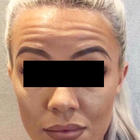
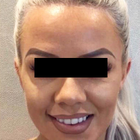
Front view
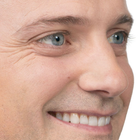

Half-side view
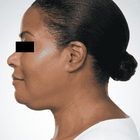
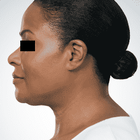
Full-side view


Front view
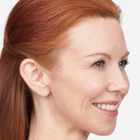
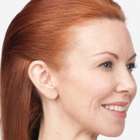
Half-side view
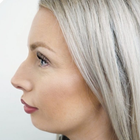
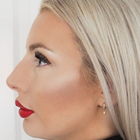
Full-side view


Front view
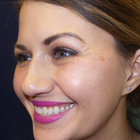
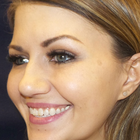
Half-side view
WHY US?
At Medijump, we're making medical easy. You can search, compare, discuss, and book your medical all in one place. We open the door to the best medical providers worldwide, saving you time and energy along the way, and it's all for FREE, no hidden fees, and no price markups guaranteed. So what are you waiting for?

Free

Best Price

Widest Selection

Risk-Free
What you need to know about Botox Injections in Switzerland
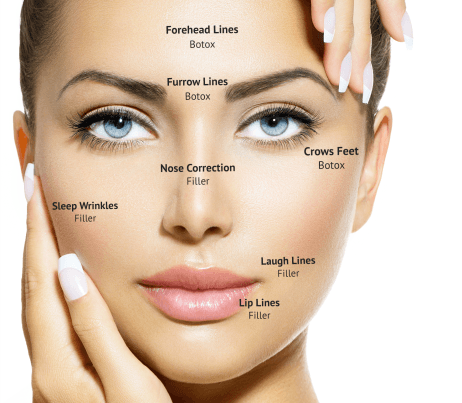
In order to gain an all-encompassing understanding of Botox Injections in Switzerland, conducting thorough research before scheduling a procedure is vital. Botox Injections is commonly pursued to achieve youthful benefits by utilizing a purified form of botulinum toxin to relax facial muscles, effectively diminishing wrinkles, fine lines, and age-related creases.
Although generally safe, the procedure might lead to temporary bruising or slight sagging of the eyelid or eyebrow. However, these minor risks can be avoided by consulting a skilled and reputable professional in Switzerland. To access more in-depth information on the procedure, turn to reputable health resources like WebMD for extensive insights.
What is the cost of Botox Injections in Switzerland?
The price of a Botox Injections in Switzerland depends on several aspects, such as the particular clinic, the practitioner's expertise, and the size of the treatment area. As a result, there might be a considerable difference in costs. Nevertheless, prioritizing a high-quality procedure guarantees minimal risks and excellent outcomes; hence, it is vital for patients to obtain several price estimates to determine a reasonable value.
What does a Botox Injections Procedure Involve?
A Botox Injections entails administering a small quantity of botulinum toxin into select muscles underneath the skin. This results in the targeted muscles becoming relaxed, consequently reducing the visibility of wrinkles and fine lines.
Generally, the entire procedure takes approximately 15 to 30 minutes, contingent on the area being treated. Patients may experience mild discomfort, similar to a gentle pinch, during the process. Comprehensive information about the procedure specifics can be found at the Mayo Clinic.
How Long Should I Stay in Switzerland for a Botox Injections Procedure?
The Botox Injections does not necessitate any recovery time, and most individuals can continue with their regular routines without interruption post-treatment. However, it's generally advised to remain in Switzerland for a few days following the procedure to relax and let nominally common side effects like swelling or bruising dissipate. A follow-up consultation with the healthcare provider can be beneficial to examine the outcome and carry out any required alterations.
In Switzerland, there's an abundance of renowned clinics conducting Botox Injections. These establishments not only render excellent care but also accommodate a tranquil environment where an individual can comfortably rest before journeying home. An extended stay of a few days enables the patient to enjoy rest and explore the facilities and tourist spots Switzerland purveys, making their medical trip more pleasurable.
What's the Recovery Time for Botox Injections Procedures in Switzerland?
Among the primary advantages of Botox Injections is its swift recuperation period. More often than not, you can carry on with your daily tasks post-procedure, earning it a favorite for "lunchtime" appointments. Still, steering clear of demanding physical activities for 24 hours after the procedure is advised. Mild swelling, bruising, or redness at the injection site are usual side effects but typically dissipate within a few hours or days. It is important to abide by the post-care directions provided by the clinic to expedite recovery and amplify the outcome.
What sort of Aftercare is Required for Botox Injections Procedures in Switzerland?
After a Botox Injections procedure, you will be able to return to your normal activities immediately. However, your provider may advise you to avoid strenuous activities, exposure to strong sunlight, and consuming alcohol for a certain period. This is to ensure that the injected protein does not spread to other areas and only affects the intended muscles.
Patients are advised to avoid lying down or leaning forward for four hours after the treatment, as this could cause the Botox Injections to spread to other areas of the face, causing unwanted effects. It's also recommended to avoid massaging or rubbing the treated area for 24 hours. Insights from Mayo Clinic show that any mild discomfort, swelling, or bruising at the injection site should resolve on its own within a few days.
What's the Success Rate of Botox Injections Procedures in Switzerland?
Botox Injections has garnered international acclaim for its high efficacy, including in Switzerland. When administered by proficient experts, numerous patients witness discernible enhancements in the treated regions, commonly resulting in elevated self-esteem and improved physical appeal. However, akin to every medical procedure, the precise success rate can fluctuate depending on individual response, the competence of the practitioner, and the distinct purpose of the treatment. It is recommended to set realistic expectations and grasp that while Botox Injections yields substantial results, it does not indefinitely eliminate all aging symptoms.
Are there Alternatives to Botox Injections Procedures in Switzerland?
While Botox Injections has become a popular choice for reducing facial lines and wrinkles due to its effectiveness and minimal downtime, it's not the only option. There are several alternatives to consider if you're not sure if Botox Injections is right for you. For example, dermal fillers can also significantly reduce the appearance of wrinkles and add volume to the face.
Laser treatments, chemical peels, and microdermabrasion are other options that can rejuvenate your skin and enhance your appearance. However, as every person is unique, it's best to discuss with your healthcare provider to determine the most suitable treatment for your specific concerns and needs.
What Should You Expect Before and After the Procedure.
Before proceeding with Botox Injections, a preliminary consultation is necessary to evaluate your appropriateness for the treatment and to align your expectations. You should be in general good health and not carrying a baby or nursing. Your provider will review your medical history, and may suggest you cease taking certain medications a few days prior to undertaking the treatment.
Post-procedure, a temporary bruise or mild headache might occur, generally alleviating after a few hours. Your specialist will furnish you with post-treatment guidelines, which commonly advise avoiding rigorous activities and exposure to heat for the first 24 hours after treatment. The entire impact of the treatment will be apparent after approximately two weeks. Routine follow-up consultations are needed to preserve the results since the effects of Botox Injections are fleeting, generally lasting between three to six months.
How safe is Botox Injections?
Botox Injections boasts a considerable history of secure utilization in the aesthetic industry, and has been the subject of extensive research, distinguishing it as one of the most comprehensively examined cosmetic medical procedures. Minor side effects like bruising, swelling, or redness are typical, but they usually subside within a few days. More severe side effects including allergic reactions or muscular weakness are infrequent. To reduce the risk of complications, always ensure your Botox Injections is carried out by a qualified and accredited professional.
Does Botox Injections have long-term effects?
The effects of Botox Injections are mostly of a transient nature, with the majority of individuals seeing the smoothening result last around three to six months. That said, with periodic and steady treatments, some patients might observe a long-term enhancement in their lines and wrinkles as the targeted muscles adapt to relaxation. Persistent treatments of Botox Injections can educate facial muscles to contract less, thereby diminishing wrinkle visibility over time.
Though Botox Injections isn't a remedy for the root causes of these lines and doesn't halt the aging process, its regular application can considerably decelerate the visible aging signs. Always engage in a consultation with your healthcare provider for personalized guidance.
Whilst the information presented here has been accurately sourced and verified by a medical professional for its accuracy, it is still advised to consult with your doctor before pursuing a medical treatment at one of the listed medical providers
No Time?
Tell us what you're looking for and we'll reachout to the top clinics all at once
Enquire Now

Popular Procedures in Switzerland
Prices Start From $111

Prices Start From $16

Prices Start From $220

Prices Start From $74

Prices Start From $340

Prices Start From $101

Prices Start From $53

Prices Start From $278

Recommended Medical Centers in Switzerland for procedures similar to Botox Injections

- Interpreter services
- Translation service
- Religious facilities
- Medical records transfer
- Medical travel insurance
- Health insurance coordination
- TV in the room
- Safe in the room
- Phone in the room
- Private rooms for patients available

- Interpreter services
- Translation service
- Religious facilities
- Medical records transfer
- Medical travel insurance
- Health insurance coordination
- TV in the room
- Safe in the room
- Phone in the room
- Private rooms for patients available

- Interpreter services
- Translation service
- Religious facilities
- Medical records transfer
- Medical travel insurance
- Health insurance coordination
- TV in the room
- Safe in the room
- Phone in the room
- Private rooms for patients available

- Interpreter services
- Translation service
- Religious facilities
- Medical records transfer
- Medical travel insurance
- Health insurance coordination
- TV in the room
- Safe in the room
- Phone in the room
- Private rooms for patients available

- Interpreter services
- Translation service
- Religious facilities
- Medical records transfer
- Medical travel insurance
- Health insurance coordination
- TV in the room
- Safe in the room
- Phone in the room
- Private rooms for patients available

- Interpreter services
- Translation service
- Religious facilities
- Medical records transfer
- Medical travel insurance
- Health insurance coordination
- TV in the room
- Safe in the room
- Phone in the room
- Private rooms for patients available

- Interpreter services
- Translation service
- Religious facilities
- Medical records transfer
- Medical travel insurance
- Health insurance coordination
- TV in the room
- Safe in the room
- Phone in the room
- Private rooms for patients available

- Interpreter services
- Translation service
- Religious facilities
- Medical records transfer
- Medical travel insurance
- Health insurance coordination
- TV in the room
- Safe in the room
- Phone in the room
- Private rooms for patients available

- Interpreter services
- Translation service
- Religious facilities
- Medical records transfer
- Medical travel insurance
- Health insurance coordination
- TV in the room
- Safe in the room
- Phone in the room
- Private rooms for patients available

- Interpreter services
- Translation service
- Religious facilities
- Medical records transfer
- Medical travel insurance
- Health insurance coordination
- TV in the room
- Safe in the room
- Phone in the room
- Private rooms for patients available
Botox Injections in and around Switzerland
About Switzerland
Switzerland is a landlocked country located in Europe and is famous for its chocolate and clocks; this country offers its visitors beautiful landscapes, medieval towns, modern art, avant-garde culture, and Alpine tradition. From the Swiss Alps and the Jura Mountains to Renaissance-era allegorical statues and medieval architecture, Switzerland provides an unforgettable experience for everyone. Today, the country is popular with medical tourists who travel here for top quality elective surgery and dentistry. The healthcare system is world-renowned and beyond impressive, with highly qualified doctors and staff who work in ultra-modern hospitals and clinics. According to the WHO, Switzerland’s public health services system is one of the most effective in the world. A full range of advanced medicine and technology are available here, from heart surgery, orthopedics, neurosurgery, to oncology.
Popular Cities and Regions in Switzerland
Most medical tourists travel to Bern, the de facto capital of Switzerland. Here, tourists can walk around the historic town center that is brimming with churches, cobblestone streets, medieval clock towers, and well-preserved sandstone homes. The main attractions in this city are Zentrum Paul Klee and Kunstmuseum. Besides Bern, Zürich is a famous destination for medical tourists. Set on the beautiful Zurich Lake, this city offers many amazing medical centers and tourist attractions. It’s a culturally vibrant city that is recognized as one of the most liveable cities in the world. Tourists are welcome to visit Fraumüster, explore Schweizerisches Landesmuseum, and admire art at Kunsthaus. Along with Bern and Zürich, Geneva is also popular. It has the world’s largest fountain, a historic city center, and spectacular views of Lake Geneva.
Transport in Switzerland
Zurich Airport is the main gateway to Switzerland. It serves regular scheduled and charter flights to and from numerous cities in Europe, North America, and Asia. Public transport in the country is comprehensive. Trains are comfortable and scenic, and buses take over where the rails run out. Taxis and Uber are available to travel inside cities.
Visas in Switzerland
As a part of the Schengen Agreement, Switzerland allows citizens of 62 countries, including Australia and the US, to stay in the country without a visa for up to 90 days. Nationals of most other countries are required to have a Schengen visa to enter the country.
Weather in Switzerland
Winter (November – March) is cold and snowy, with an average temperature of 5 to 10°C in Zurich. It’s a popular time for tourists who want to ski. Spring (April – June) has warmer weather, although some areas still experience snowfall. Summer (July – August) brings perfect and warm weather, with an average temperature of 27°C. Autumn (September – October) is still warm but the days are becoming shorter.
Additional Info
- Local Currency: The currency is the Swiss Franc (CHF). 1 CHF is equivalent to 1.04 USD.
- Money & Payments: ATMs can be found easily and major credit cards (Visa and MasterCard) are widely accepted. Tipping is not necessary.
- Local Language: Switzerland has four official languages: German, French, Italian, and Romansh. Most of the population speaks excellent English, especially those in major cities.
- Local Culture and Religion: The predominant religion is Christianity, which has been present in the country since the Roman Era. The country guarantees full freedom of religion, and Islam, Hinduism, Buddhism, Judaism, as well as other religions are practiced by a small portion of the population.
- Public Holidays: Switzerland has several public holidays, including New Year’s Day, Berchtold's Day, Corpus Christi, Immaculate Conception Day, and Christmas Day.
Popular Searches
- Plastic Surgery in Thailand
- Dental Implants in Thailand
- Hair Transplant in Thailand
- Breast Augmentation Thailand
- Gastric Sleeve in Thailand
- Gender Reassignment Surgery in Thailand
- Laser Hair Removal in Bangkok
- Botox in Bangkok
- Dermatology in Bangkok
- Breast Augmentation in Bangkok
- Coolsculpting in Bangkok
- Veneers in Turkey
- Hair Transplant in Turkey
- Rhinoplasty in Turkey
- Stem Cell Therapy in Mexico
- Rhinoplasty in Mexico
- Liposuction in Mexico
- Coolsculpting in Tijuana
- Rhinoplasty in Korea
- Scar Removal in Korea
- Gastric Sleeve in Turkey
- Bone Marrow Transplant in India
- Invisalign in Malaysia
- Plastic Surgery in the Dominican Republic
- Tummy Tuck in the Dominican Republic
- Plastic and Cosmetic Surgery in Poland
- Rhinoplasty in Poland
- Hair Implant in Poland
- Dental Implants in Poland
- IVF in Turkey